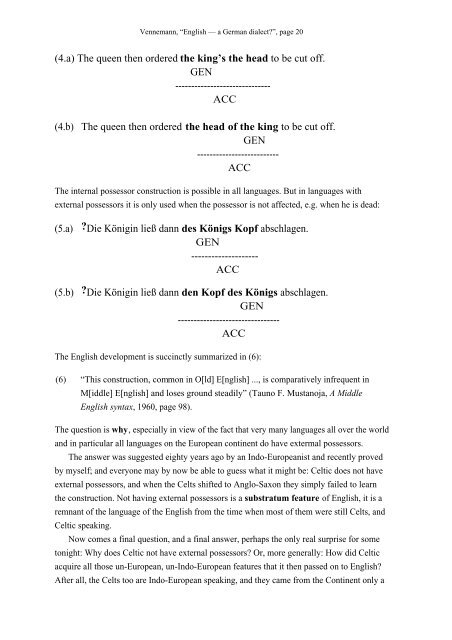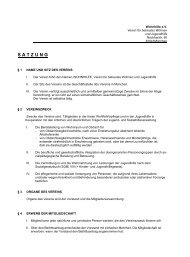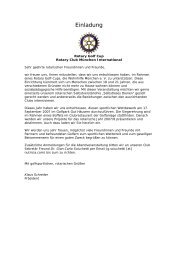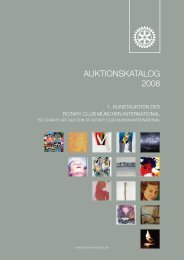English - a German dialect? - Rotary Club of Munich International
English - a German dialect? - Rotary Club of Munich International
English - a German dialect? - Rotary Club of Munich International
Create successful ePaper yourself
Turn your PDF publications into a flip-book with our unique Google optimized e-Paper software.
Vennemann, “<strong>English</strong> — a <strong>German</strong> <strong>dialect</strong>?”, page 20<br />
(4.a) The queen then ordered the king’s the head to be cut <strong>of</strong>f.<br />
GEN<br />
------------------------------<br />
ACC<br />
(4.b) The queen then ordered the head <strong>of</strong> the king to be cut <strong>of</strong>f.<br />
GEN<br />
--------------------------<br />
ACC<br />
The internal possessor construction is possible in all languages. But in languages with<br />
external possessors it is only used when the possessor is not affected, e.g. when he is dead:<br />
(5.a) ?Die Königin ließ dann des Königs Kopf abschlagen.<br />
GEN<br />
--------------------<br />
ACC<br />
(5.b) ?Die Königin ließ dann den Kopf des Königs abschlagen.<br />
GEN<br />
--------------------------------<br />
ACC<br />
The <strong>English</strong> development is succinctly summarized in (6):<br />
(6) “This construction, common in O[ld] E[nglish] ..., is comparatively infrequent in<br />
M[iddle] E[nglish] and loses ground steadily” (Tauno F. Mustanoja, A Middle<br />
<strong>English</strong> syntax, 1960, page 98).<br />
The question is why, especially in view <strong>of</strong> the fact that very many languages all over the world<br />
and in particular all languages on the European continent do have extermal possessors.<br />
The answer was suggested eighty years ago by an Indo-Europeanist and recently proved<br />
by myself; and everyone may by now be able to guess what it might be: Celtic does not have<br />
external possessors, and when the Celts shifted to Anglo-Saxon they simply failed to learn<br />
the construction. Not having external possessors is a substratum feature <strong>of</strong> <strong>English</strong>, it is a<br />
remnant <strong>of</strong> the language <strong>of</strong> the <strong>English</strong> from the time when most <strong>of</strong> them were still Celts, and<br />
Celtic speaking.<br />
Now comes a final question, and a final answer, perhaps the only real surprise for some<br />
tonight: Why does Celtic not have external possessors? Or, more generally: How did Celtic<br />
acquire all those un-European, un-Indo-European features that it then passed on to <strong>English</strong>?<br />
After all, the Celts too are Indo-European speaking, and they came from the Continent only a






